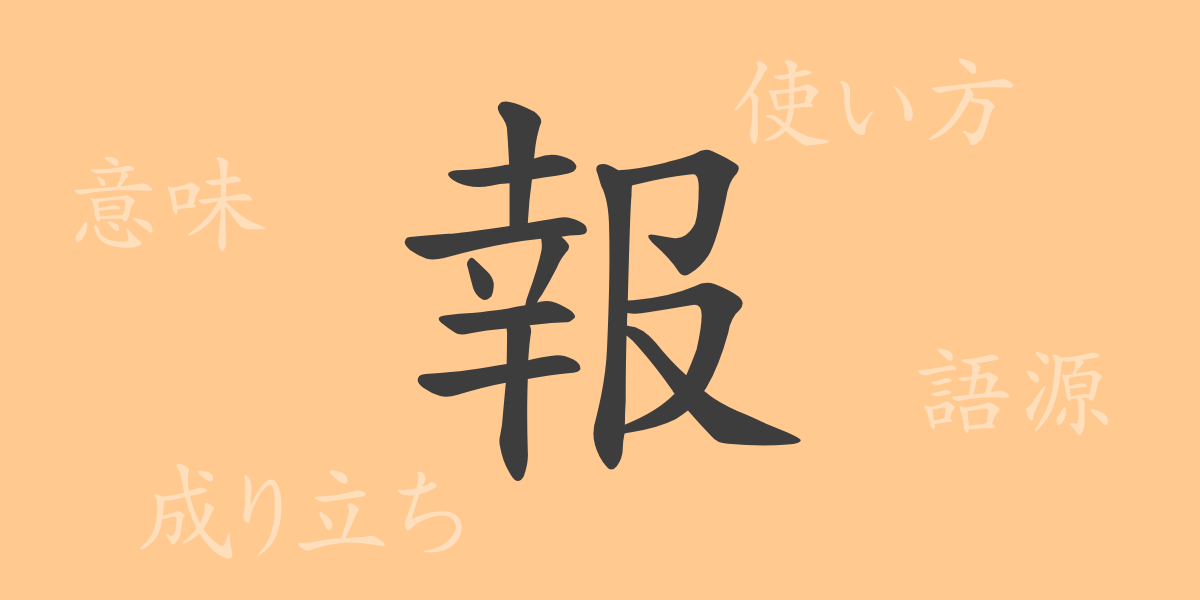The written Japanese language is imbued with a profound history and meaning in each of its kanji characters. One of the commonly used kanji, 「報」 (hō), is deeply rooted in our daily lives and is used in various contexts. In this article, we will delve into the depth of the meaning behind the kanji 「報」 (hō), exploring its usage and etymology to gain a deeper understanding.
Etymology of 報ほう (hō)
The kanji 「報」 (hō) has its origins in ancient China. This character, which evolved from pictographs, was originally written as 「反報」 (hanhō), combining the character 「反」 (han), which means “to echo,” with the primitive form of 「豊」 (hō), symbolizing harvest. From this, the meaning “to receive blessings” emerged. Eventually, 「報」 (hō) came to signify the act of reciprocating when one receives a favor, thus encompassing broader concepts such as reward and response.
Meaning and Usage of 報ほう (hō)
The kanji 「報」 (hō) is used in various words that denote response or reciprocation, such as 報告 (hōkoku, report), 報酬 (hōshū, reward), and 報いる (mukuiru, to repay). Specifically, the verb 「報いる」 (mukuiru) means to respond to good deeds with good actions or to retaliate against bad deeds with bad actions. Furthermore, this kanji appears in frequently used words in daily life, such as 報告 (hōkoku, report) and 報酬 (hōshū, reward) for labor or achievements.
Reading, Stroke Count, and Radical of 報ほう (hō)
It is important to deepen our understanding of the readings and structure of the kanji 「報」 (hō).
- Reading: On’yomi (音読み) is “hō”; there is no Kun’yomi (訓読み)
- Stroke Count: 12 strokes
- Radical: 士部 (samuraihen)
Idioms, Proverbs, and Phrases Using 報ほう (hō)
There are numerous idioms, proverbs, and phrases in Japanese that include the kanji 「報」 (hō). For example, 情報 (jōhō, information) conveys matters that should be known, 報酬 (hōshū, reward) is the compensation paid for labor, and 報復 (hōfuku, retaliation) means revenge. Additionally, the proverb 「知らぬが仏」 (shiranuga hotoke) implies that ignorance is sometimes bliss, and the expression 「恩を報じる」 (on wo hōjiru) means to return a favor with gratitude.
Conclusion on 報ほう (hō)
Through this article, we have deepened our understanding of the rich meaning and usage of the kanji 「報」 (hō). Each kanji in the Japanese language has its unique history and significance, playing an essential role in our communication. By exploring the frequently seen kanji 「報」 (hō), we hope you can enhance your knowledge of kanji and enjoy the richer world of words.

























